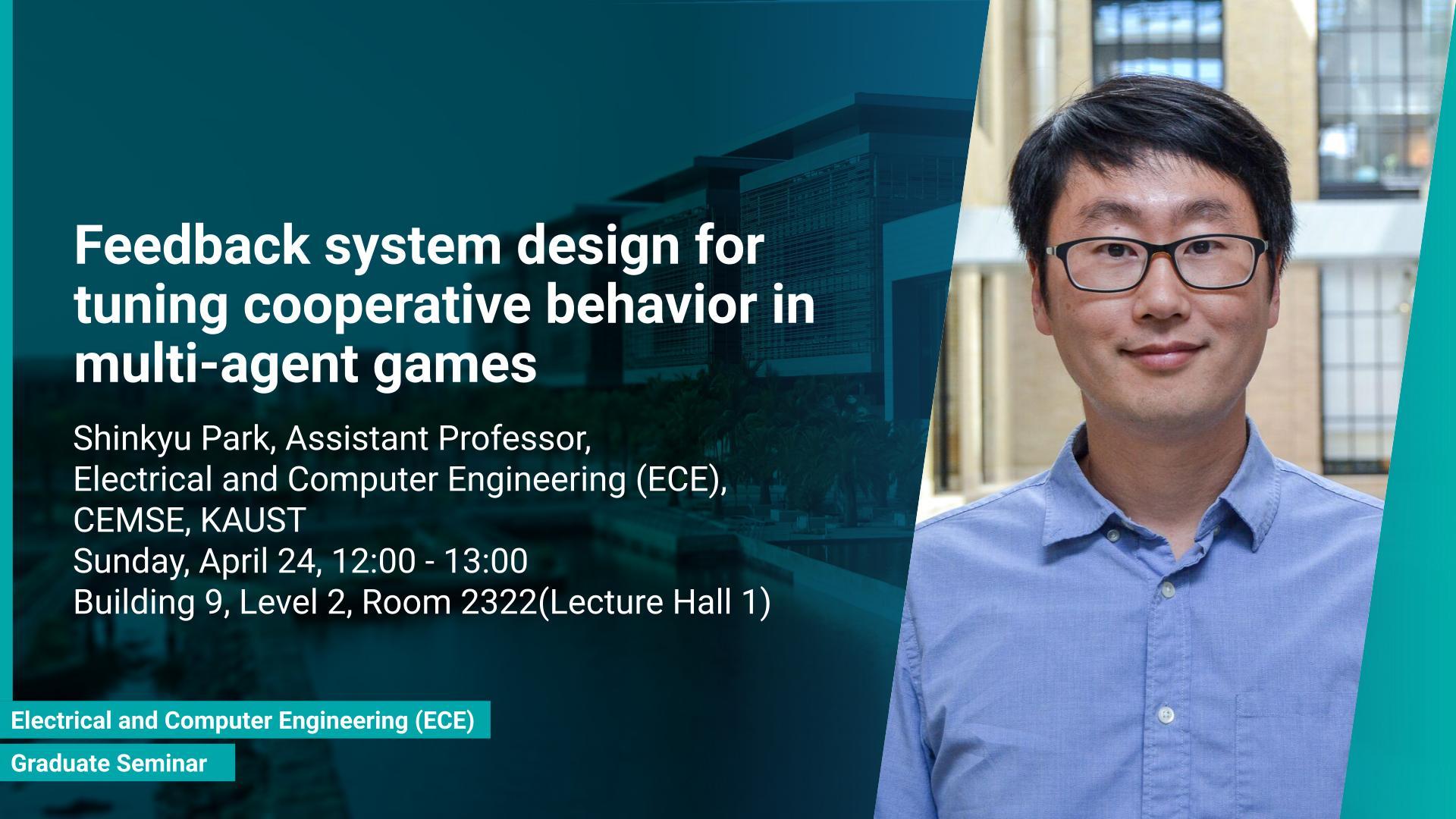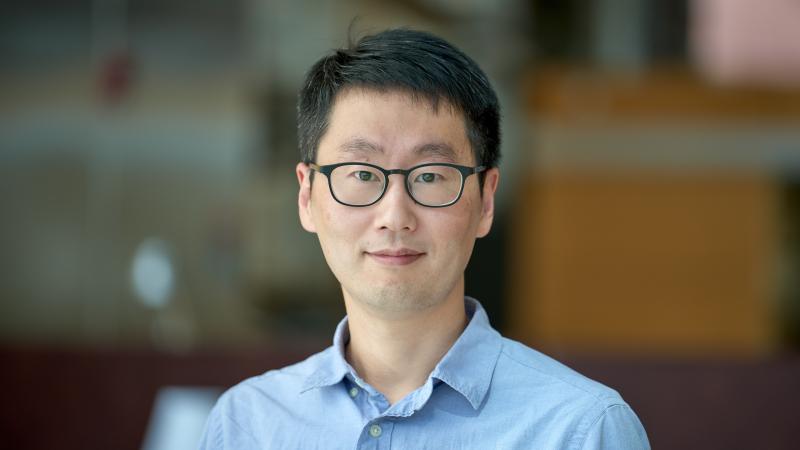Event Start
Event End
Location
Abstract
In social dilemmas, a class of multi-agent games, agents' rationality-based strategic interactions to learn a payoff-maximizing strategy would result in diminishing returns. Such games include the prisoner's dilemma and public goods game where individually rational decision making reults in all decision-making agents receiving smallest rewards. In this presentation, I will explain a new decision-making model that elicits cooperative behavior in social dilemmas. The model enables the social interaction (reciprocity) between agents in their decision making, which allows cooperative behavior to emerge. We discuss how methods for feedback system design and analysis can be applied to explain the emergence of cooperative behavior and how we can tune such behavior.
Brief Biography
Shinkyu Park is an Assistant Professor of Electrical and Computer Engineering and Principal Investigator of Distributed Systems and Autonomy Group at King Abdullah University of Science and Technology (KAUST). Prior to joining KAUST, he was Associate Research Scholar at Princeton University engaged in cross-departmental robotics projects. He received the Ph.D. degree in electrical engineering from the University of Maryland College Park in 2015. Later he held Postdoctoral Fellow positions at the National Geographic Society (2016) and Massachusetts Institute of Technology (2016-2019).
Park's research focuses on the learning, planning, and control in multi-agent/multi-robot systems. He aims to make foundational advances in robotics science and engineering to build individual robots' core capabilities of sensing, actuation, and communication and to train them to learn the ability to work as a team and attain high-level of autonomy in distributed information processing, decision making, and manipulation. His past research projects include designing animal-borne sensor networks to monitor wild animal groups in their natural habitats. He also created a fleet of urban autonomous surface vessels capable of transporting people, providing deliveries and trash removal services through urban canal networks. MIT News highlighted a selection of research achievements.

